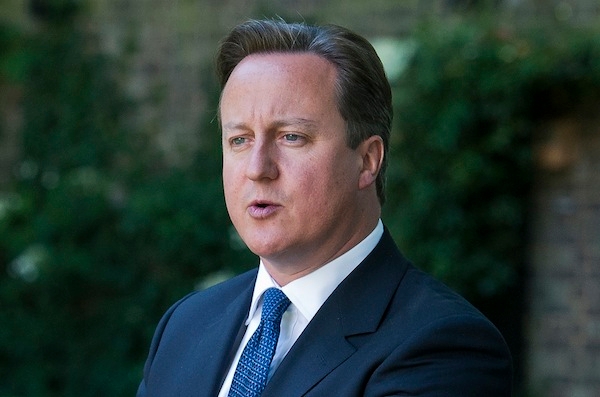Having lost last night’s vote, David Cameron needs to spend today fighting back. There are quite a few ways he can do so. He can easily brush off the more excitable charges: that he faces a leadership challenge, or that Tories will come for him at party conference. They won’t. Cameron was elected to fix Britain, not Syria, and he’s doing quite well with the day job. Employment is at a record high, schools and welfare are being reformed, crime’s down. Cameron has not been defeated on a cornerstone of his foreign policy, but on a plan to join an American missile strike that may not take place. It was a grave error for Cameron to put his reputation on the line and portray the Syrian missile strike as a moment that would define Britain for good and for ill. Having blown all this up, he’ll have trouble deflating it. But he’ll have to try. TV crews will be camped out on College Green today – No10 should deploy Cameron loyalists aplenty.
Next, he should exploit the fact that what Westminster sees as a U-turn is often seen by the public as listening. Paying heed. Cameron changed the system to make parliament stronger, and the prime minister weaker. After the vote he said:-
‘The British Parliament, reflecting the views of the British people, does not want to see British military action – I get that,’
Humble words, and ones Gordon Brown would have choked on. Let’s remember that both Cameron and Barack Obama promised, before their election, that they’d hold debates before military action. Only Cameron honoured this promise. Today’s Washington Post is arguing for Congress to be heard, just as Westminster was heard. It is to Cameron’s great credit that parliament was convened yesterday: bad for him politically, perhaps, but an important part of a much-needed democratic renewal. Don’t expect to be reading articles about why parliament doesn’t matter any time soon. Cameron’s reforms mean it matters more than ever. He gave parliament the knuckle-duster with which he was decked last night.
Third, focus on Labour. Ed Miliband had an abysmal day (as Toby Young says) and Cameron’s main miscalculation was to trust Miliband (as Dan Hodges says in today’s Telegraph). He backed out after being told by Labour whips that a third of the party was against him and, I understand, that he’d see as many as six frontbench resignations. Miliband has been lucky, rather than smart. In the post-vote interviews last night he was trying to pose as the plucky young thing who took on Big Bad America like he took on Big Bad Murdoch. You can bet that he’ll want to portray this vote into his victory – rather than a simple blunder by No10 in believing that he could be taken at his word. The Tories should not let him get away with it.
Finally, hold an inquest. This was worse than a defeat, it was a cock-up – and in British politics, cock-ups don’t come much bigger than needlessly losing a vote into matters as fundamental as war and peace. The decision to hold the vote in the first place exposes a potentially fatal gap between leader and party. This relationship has been much better since Cameron held a vote on an EU referendum, but evidently they were not all behind him. James Forsyth and I were discussing yesterday afternoon how a defeat seemed unlikely: given that the motion was so vacuous, I said, you’d have to really hate Cameron to vote against it. It seems quite a lot of them do.
As Gordon Brown knew, the day after a major setback – say, a drubbing in the local elections – is a very vulnerable time for a government. And a vulnerable time leader. Even Janan Ganesh, one of Cameron’s most articulate supporters, says he looks “weaker than at any time since taking office more than three years ago”. So Cameron needs to make today go a whole lot better than yesterday.







Comments